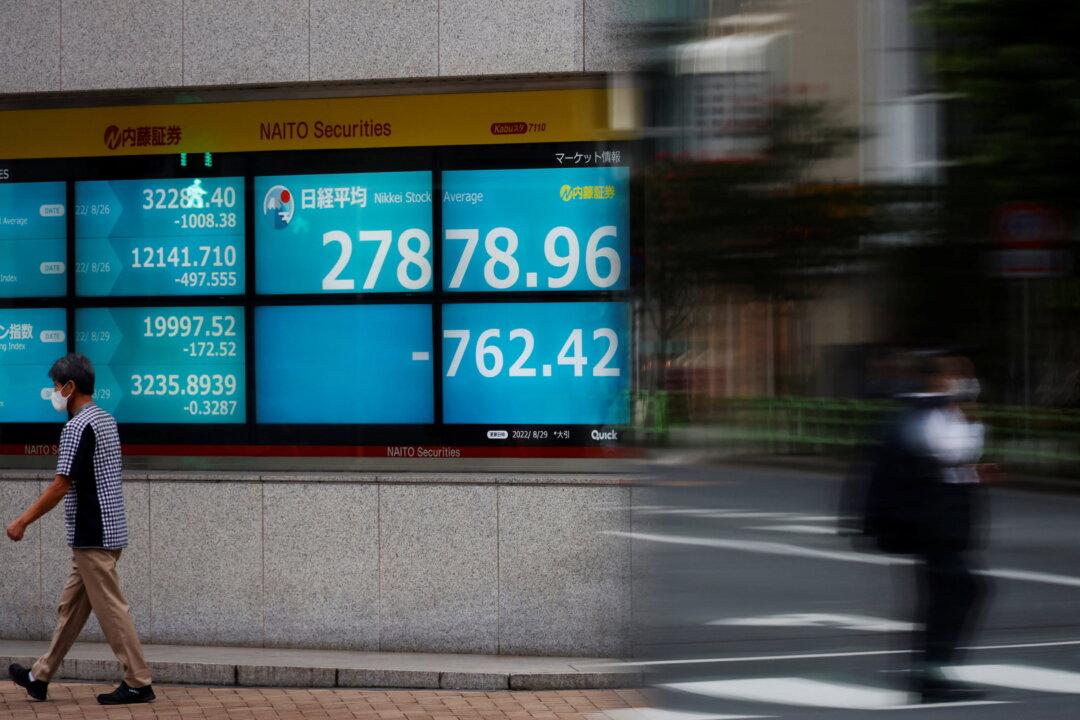LONDON—Record-high inflation in the eurozone compounded recession fears stalking markets on Wednesday as central banks on both sides of the Atlantic prepared to raise borrowing costs for businesses and households again next month.
Wall Street was set for a muted start as U.S. crude oil prices sank for a second day, trading below $90 a barrel on worries about demand in a struggling global economy, while untamed inflation knocked the euro and sent investors to the safe haven dollar.





